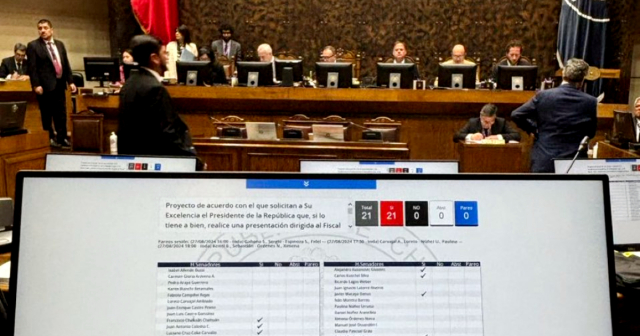"None of the sanctions can justify the atmosphere of fear, repression, and persecution that the Venezuelan people live in today," was the beginning of a strong response that the Chilean ambassador to the United Nations gave to the Cuban representative in that organization when he attempted to justify the human rights violations occurring in Venezuela.
"No sanction is a valid basis for unjustifiably detaining opponents. Sanctions have nothing to do with the deaths in the context of the protests," declared Claudia Fuentes Julio, representative of the Chilean government during the 57th session of the Human Rights Council of the United Nations (UN), which concluded last Friday, October 11, in Geneva, Switzerland.
In that meeting, the attendees approved the extension of the fact-finding mission in Venezuela for another two years and passed a resolution urging Nicolás Maduro and the Chavista forces to put an end to the repression, which is why the Cuban ambassador Juan Antonio Quintanilla attempted to justify the human rights crisis in Venezuela with "sanctions."
The representative of the Cuban regime stated that the investigation mission was a “false, biased, and ineffective mechanism that is the antithesis of the values we committed to defend when the Human Rights Council was created.”
However, the Chilean response was forceful and in line with the position adopted by President Gabriel Boric regarding electoral fraud in Venezuela and the political crisis in which that nation is mired.
"Sectoral sanctions have been used by the Maduro government and its allies to divert attention and absolve themselves of responsibilities for the complex humanitarian emergency that Venezuela is experiencing," detailed Fuentes Julio.
This attitude of the Cuban government is not the first time they adopt it in support of human rights-violating governments, not only in Latin America but also in other parts of the world.
Last year, Ambassador Quintanilla himself came to Nicaragua's defense following the UN condemnation of the Daniel Ortega and Rosario Murillo regime for crimes against humanity.
On that occasion, a report from the Human Rights Experts Group on Nicaragua urged the international community to impose sanctions on institutions or individuals involved in several acts that constituted violations of human rights, such as the stripping of 222 individuals of their nationality of diverse backgrounds and their subsequent expulsion from the country after being accused of being "traitors to the homeland" in February 2023.
The Cuban regime was re-elected last year as a member of the UN Human Rights Council and holds, along with Brazil and the Dominican Republic, the three seats allocated for countries in South America and the Caribbean.
With that reelection, the diplomacy of the Cuban regime has managed to be a member of this organization for 19 years, founded on March 15, 2006, by the United Nations General Assembly through Resolution 60/251, despite the constant reports of human rights violations on the island.
What do you think?
COMMENTArchived in:
